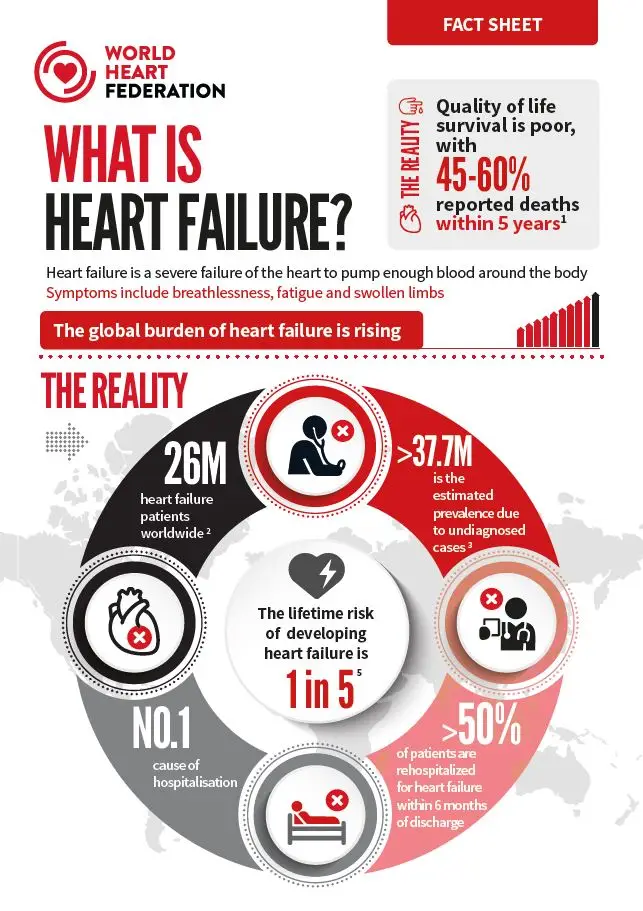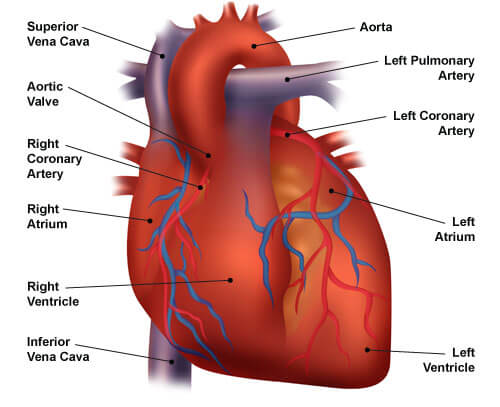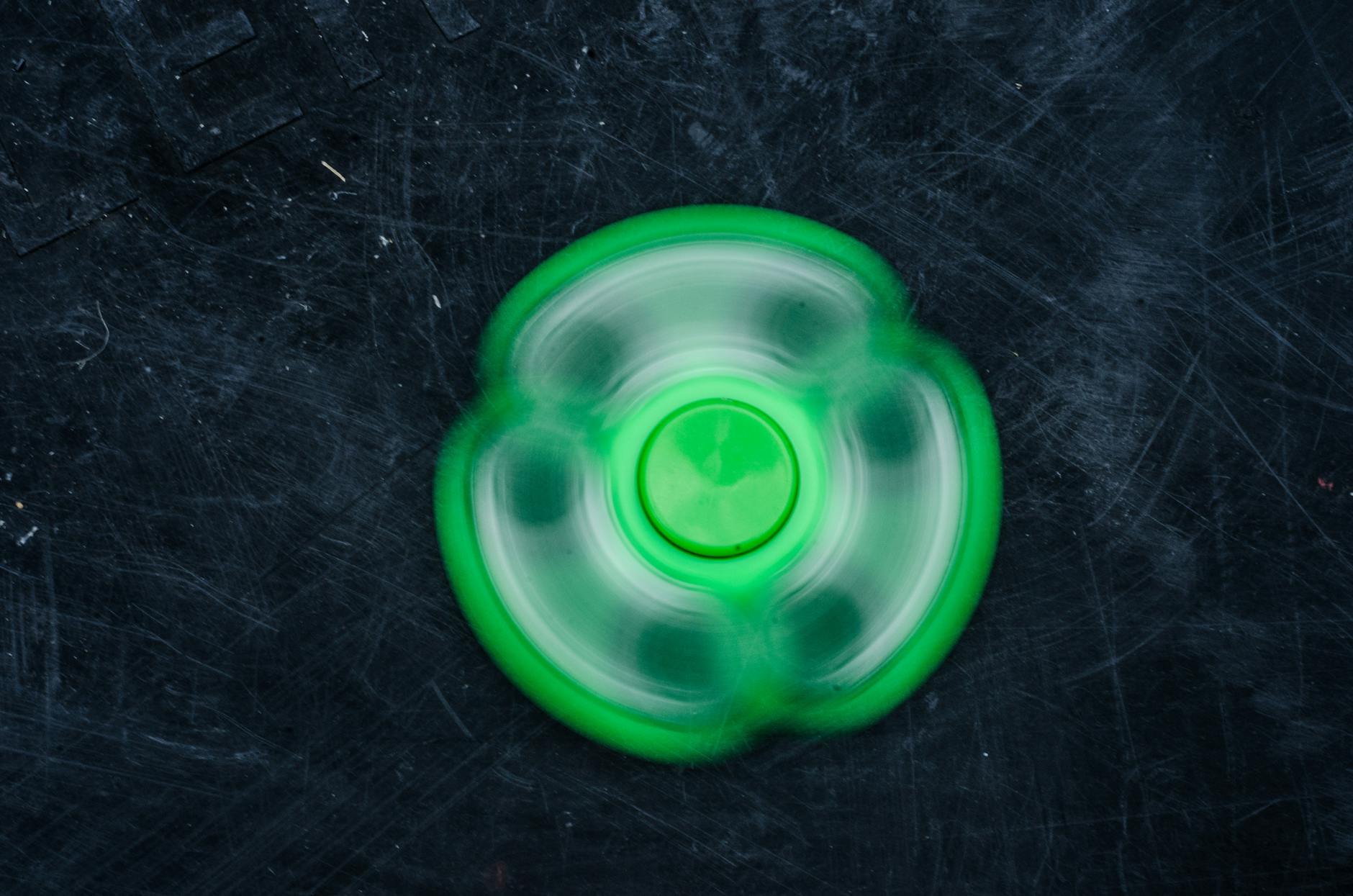Unlock the secrets of CHF and discover how to ease your heart woes with this comprehensive guide to managing symptoms.
Table of Contents
- Introduction: Understanding Congestive Heart Failure
- The Heart’s Pumping Power
- When the Heart Gets Tired: Symptoms of CHF
- What Causes CHF?
- The Types of CHF
- How Doctors Check for CHF
- Living with CHF: Treatment and Care
- The Important Role of Cholesterol
- Preventing CHF: Tips for a Healthy Heart
- Conclusion: Your Heart’s Best Friend
- FAQs About Congestive Heart Failure
Introduction: Understanding Congestive Heart Failure
Welcome, young readers! Today, we’re going to talk about something called congestive heart failure (CHF). But don’t worry, I’ll explain it in a simple and easy way so you can understand how it affects the heart.
What CHF Means
Congestive heart failure, or CHF for short, happens when the heart can’t pump blood around the body as well as it should. You can think of the heart as a pump that needs to work properly to keep the blood flowing smoothly. When it doesn’t work as well, that’s when we talk about CHF.
The Heart’s Pumping Power
Imagine your heart as a pump in your body. Its job is to make sure that blood keeps flowing smoothly to every part of your body. Just like how a pump in a water fountain moves water around, your heart keeps your blood moving through all your veins and arteries.
When the Heart Gets Tired: Symptoms of CHF
When your heart is struggling, it can show in various ways. One common symptom of congestive heart failure (CHF) is feeling very tired or fatigued. You might find yourself getting worn out more quickly than usual, even with simple activities.

Image courtesy of world-heart-federation.org via Google Images
Another sign to watch out for is difficulty breathing. You might feel like you can’t catch your breath or that you need to take deep breaths more often. This could be a sign that your heart is having trouble pumping blood efficiently throughout your body.
Some people with CHF also experience swelling in their legs or abdomen. This happens when fluid builds up in these areas due to your heart not effectively moving blood out of these regions. It can make your legs feel heavy and uncomfortable.
If you notice any of these symptoms or have concerns about your heart health, it’s essential to talk to an adult or a healthcare provider. They can help figure out what’s going on and provide the best care for your heart.
What Causes CHF?
CHF can be caused by many factors including high blood pressure and high cholesterol. These are conditions that affect the heart and can lead to problems if not taken care of.
High Blood Pressure and High Cholesterol
When blood pressure is too high, it puts extra strain on the heart. The heart has to work harder to pump blood around the body, which can lead to CHF over time. High cholesterol can cause fatty deposits to build up in the arteries, making it harder for the heart to pump blood efficiently. Both high blood pressure and high cholesterol can damage the heart muscle and lead to congestive heart failure.
The Types of CHF
When it comes to congestive heart failure (CHF), there are different types that we should know about. But don’t worry, we don’t need to get stuck on the complicated names. Let’s briefly talk about the various kinds of CHF.

Image courtesy of www.istockphoto.com via Google Images
Various Kinds of CHF
CHF can be classified into different types based on what is causing the heart to struggle. Sometimes it’s related to problems with the heart muscle, while other times it may be due to issues with the valves that control blood flow in the heart.
Doctors and scientists have come up with these categories to help them understand how best to treat each type of CHF. But as kids, all we need to know is that the heart can have different ways of getting tired, just like us after a long day of playing or studying.
By learning about these types, we can understand that our hearts need to be taken care of in different ways to stay strong and healthy. So, let’s keep learning about how to keep our hearts happy!
How Doctors Check for CHF
When it comes to checking for congestive heart failure (CHF), doctors have a few tools and tests up their sleeves to help them make a diagnosis. These tests may sound complicated, but let’s break them down into simpler terms.
The Stethoscope and Blood Pressure Cuffs
Have you ever seen a doctor using a stethoscope to listen to your heartbeat? Well, one of the ways doctors check for CHF is by using this special tool. By listening carefully to your heart, doctors can pick up any unusual sounds that might indicate a problem.
Another important tool that doctors use is the blood pressure cuff. You might have had your blood pressure checked before – it’s when they wrap that cuff around your arm and squeeze it for a few seconds. High blood pressure can be a sign of heart issues, so doctors pay close attention to this number.
By combining these tools and tests, doctors can get a better idea of how well your heart is working and if there are any signs of CHF. So, the next time you visit the doctor and hear that familiar “swish-swish” sound through the stethoscope, you’ll know they’re listening carefully to keep your heart healthy!
Living with CHF: Treatment and Care
Living with congestive heart failure (CHF) means taking special care of your heart to keep it as healthy as possible. There are ways to manage CHF that involve both medicine and changes in how we live.
| Heart Failure Type | Symptoms | Treatment |
|---|---|---|
| Systolic Heart Failure | Shortness of breath, fatigue, swelling | Medications, lifestyle changes, surgery |
| Diastolic Heart Failure | Fatigue, swelling, weight gain | Medications, lifestyle changes, surgery |
| Right-Sided Heart Failure | Swelling in legs, abdomen, liver | Treating underlying cause, medications, lifestyle changes |
| Left-Sided Heart Failure | Shortness of breath, fatigue, cough | Diuretics, ACE inhibitors, lifestyle changes |

Image courtesy of ceufast.com via Google Images
Medicines and Healthy Habits
To help our hearts work better, doctors may give us special medicines that can make a big difference. These medicines help our hearts pump blood more easily and can help us feel better. It’s also important to eat foods that are good for our hearts, like fruits, vegetables, and whole grains. Exercise is also crucial because it helps our hearts stay strong. Doctors may suggest different kinds of exercises or sports that can keep our hearts healthy and strong. Keeping our hearts healthy means we can play, learn, and have lots of fun!
The Important Role of Cholesterol
Cholesterol is a waxy, fat-like substance that can be found in every cell of our body. It might sound a little strange, but cholesterol actually plays a very important role in keeping our bodies healthy!
Good vs. Bad Cholesterol
So, there are two main types of cholesterol – the good kind and the not-so-good kind. HDL cholesterol is the good type that helps to keep our hearts healthy by moving the bad cholesterol away from our arteries. On the other hand, LDL cholesterol is the bad type that can build up in our arteries and make it hard for blood to flow smoothly. That’s why it’s important to watch out for this bad cholesterol and keep it in check!
Preventing CHF: Tips for a Healthy Heart
In order to keep our hearts strong and healthy, it’s important to make good choices every day. By following these simple tips, we can lower the chances of developing congestive heart failure (CHF) and keep our hearts pumping strong.

Image courtesy of ceufast.com via Google Images
Heart-Healthy Choices
One of the most important things we can do for our hearts is to stay active. When we run, jump, play sports, or even just take a walk, we are helping our hearts get stronger. Exercise is like a fun workout for our hearts, keeping them in great shape!
Another key tip for a healthy heart is to choose good snacks. Instead of reaching for sugary treats or salty chips, opt for fruits, vegetables, or nuts. These foods are packed with nutrients that our hearts love, helping us stay strong and energized.
Additionally, it’s crucial to keep an eye on our blood pressure. High blood pressure can put a strain on our hearts, making them work harder than they should. By eating well, staying active, and visiting the doctor regularly, we can ensure our blood pressure stays at a healthy level.
Remember, by making positive lifestyle choices like exercising, eating well, and monitoring our blood pressure, we can take great care of our hearts and reduce the risk of developing congestive heart failure. Let’s keep our hearts happy and healthy for a lifetime of fun and adventure!
Conclusion: Your Heart’s Best Friend
In the grand symphony that is our body, our hearts play the most important role of all. They pump and work tirelessly, ensuring that every part of us gets the blood and oxygen it needs. But just like any other important instrument, our hearts need care and attention to keep them strong.
By understanding what congestive heart failure (CHF) is, how it can affect us, and what we can do to prevent it, we become our heart’s best friends. Our hearts deserve the love and care we give to our closest friends, and keeping them happy and healthy is a lifelong journey we must take.
So, let’s remember to eat foods that make our hearts happy, stay active to keep our hearts strong, and always listen to what our bodies are telling us. Let’s be proactive and look after our hearts so that they can continue to be our best friends for years to come.
FAQs About Congestive Heart Failure
Can Kids Get CHF?
CHF is rare in kids, but it’s essential to talk about keeping our hearts healthy to prevent it. By eating good foods and staying active, we can keep our hearts strong and happy.
Does Exercise Help the Heart?
Absolutely! Exercising is like giving our heart a fun workout. It strengthens our heart muscles, helps us stay fit, and keeps our hearts pumping strong.
Why Do We Need To Check Blood Pressure?
Checking our blood pressure is vital because it tells us if our heart is working too hard. By monitoring our blood pressure regularly, we can make sure our heart stays healthy and strong.





